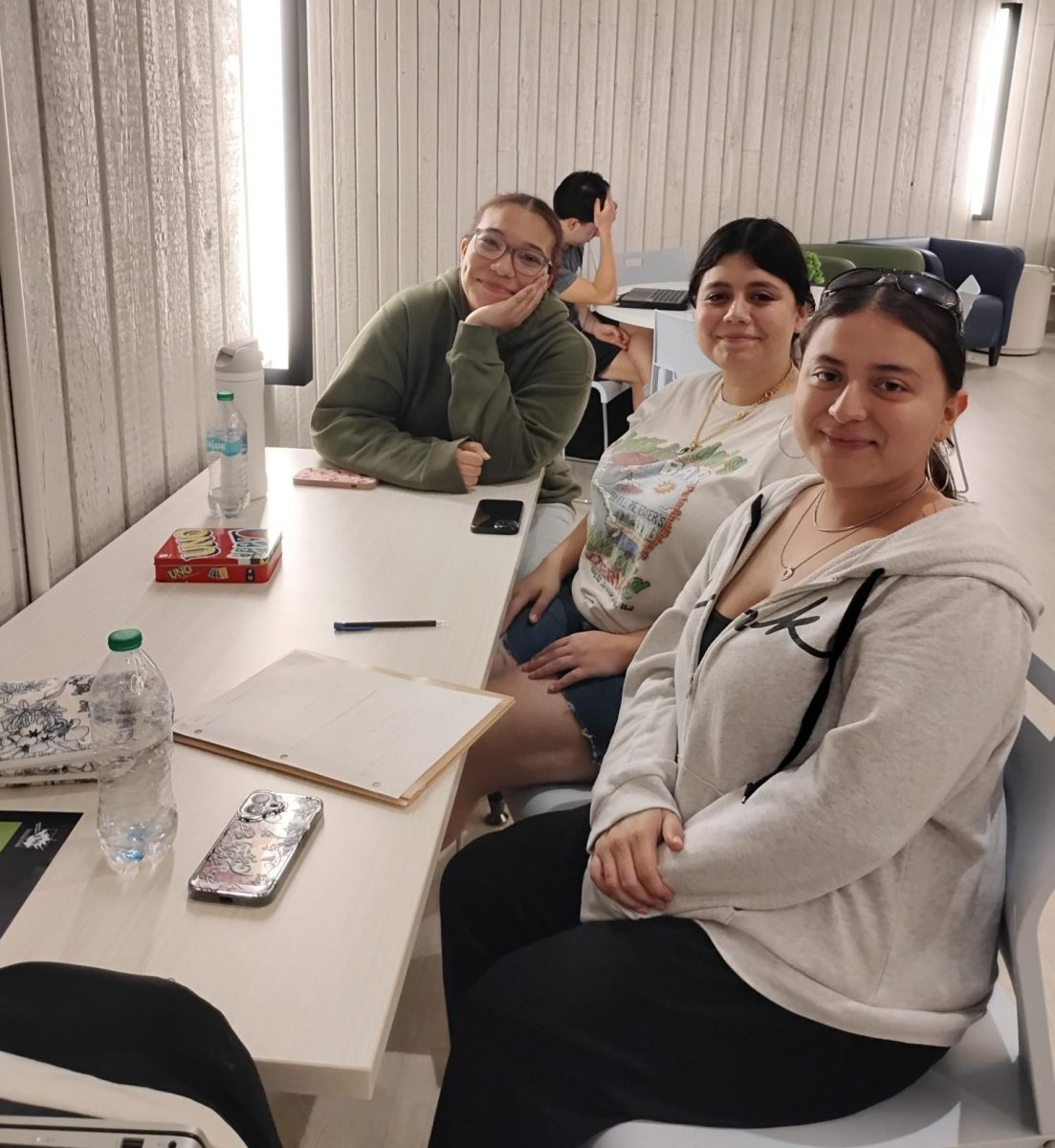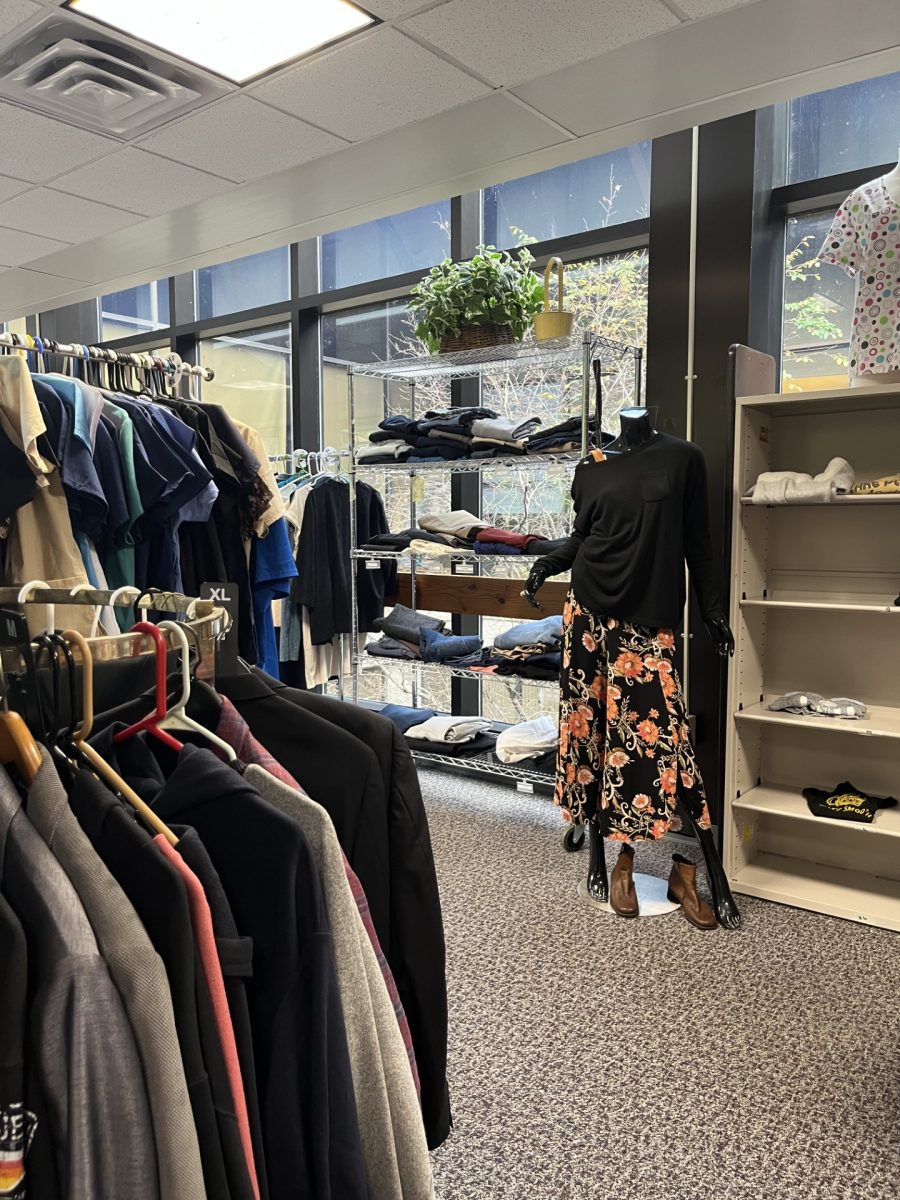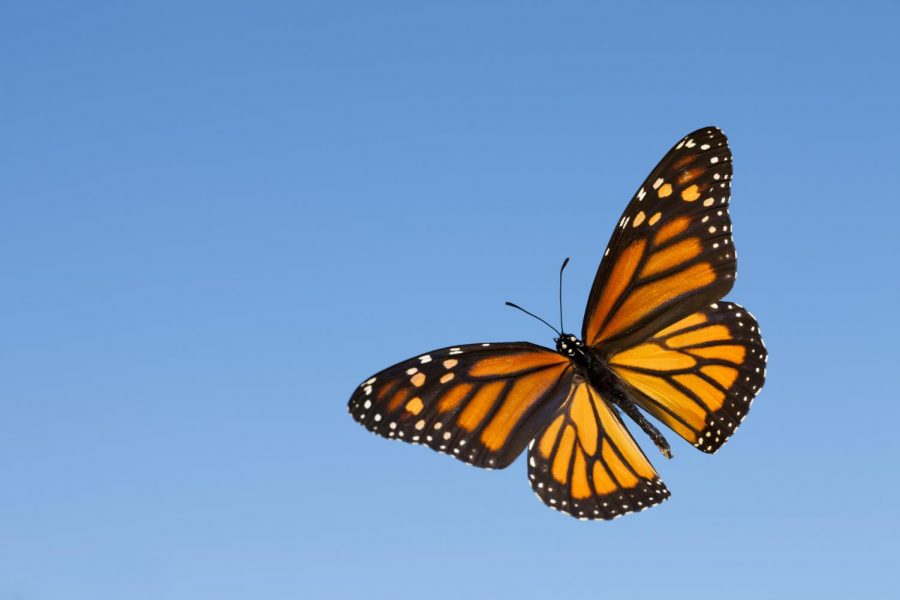Volunteers, Donors Needed to Build Butterfly Garden
March 1, 2021
When Tom Berke introduced himself at The Education Network Zoom Meeting on Feb. 16, his words captured the essence of this club.
“I have a ball with these meetings – everybody is in motion, and I love watching things get accomplished.”
Berke is a chemistry professor and co-adviser to The Innovation Network (TIN), a Brookdale club that really accomplishes things.
Berke shares the club’s advising responsibilities with Professor Debbie Mura, who teaches journalism and communications. One might forget how much this club has accomplished when listening to the casual banter between the advisers and club president Maeve Maguire and Vice President Jeanette Falotico. Jokes and laughter permeated the Zoom meeting.
Maguire joked that her new club title is “Giver of the links,” as she answered questions and shared the links to charts, photos and data with the members, advisers, and students at the meeting. Maguire and Falotico’s effortless organization helped the meeting run smoothly and efficiently. Other students either dropped by the Zoom meeting or left early, depending on their schedules.
What makes TIN unique is that, while the club certainly gets things done, the camaraderie and enthusiasm is shared equally among the members. Maguire, who is also a yoga teacher, shares how she found TIN and stated “I visited other clubs on campus, and I had heard about an idea for a butterfly garden, but no one knew where to start. I attended a few TIN meetings and we started talking about it, and then we began writing up plans for the garden.”
Maguire describes how once the ball started rolling, the possibilities seemed endless and took the project in new directions until “just about every department at Brookdale will be able to contribute to the garden in some way.”
TIN is also unique with its commitment to project-based learning, while addressing real-world problems. Building a butterfly garden attempts to address how butterfly populations have been decimated worldwide through habitat loss, pesticide use, and climate change. But the garden will be more than a butterfly sanctuary.
“A psychology professor came to a meeting and talked about how a disproportionate number of students were in crisis. So, we decided to incorporate a mental health aspect to the garden – a place for students to enjoy a peaceful space,” Maguire explained. Depending on the funding available, the group hopes to include a meditative area within the garden.
The focus of TIN is community service, outreach programs and network opportunities. As construction begins for the current project during spring break, it is clear the goals of service learning have easily been achieved: research, project planning, coordination, teamwork, compromise, and delivery. But all that takes a back-seat to the unbridled enthusiasm for the butterfly project by TIN members. From recruiting every friend or relative with a pickup truck to transport building supplies, to a “Plan B” if there’s snow (decision: they will start anyway), there is no doubt this garden will be completed, and it will be a success.
As a college, how does one incorporate an educational aspect into this butterfly project? Enter Professor Marc Bonagura, who teaches Creative Writing and English Composition. Bonagura is also an herbalist and has shared his knowledge about alternative healing methodology at TIN fundraisers and lectures at Brookdale.
His focus is on healing with plants, and he is a consultant to the club, advising what herbs could successfully be incorporated into the garden. These herbs would serve a dual purpose of teaching observers about natural healing and, in the case of herbs with a strong scent or fuzzy leaves, act as a deterrent to hungry deer.
“There will be a QR code next to each plant and you can scan the code and get all the information about that plant on your phone. You will be directed to a library of information telling you the scientific name, the common name, its uses, etc. So, there will be a little library in there which will incorporate all the plants, info on butterflies, and mental health as well.” Maguire explained how the educational component would be incorporated throughout the garden.
And this environmental, educational, and mental health resource is not just for Brookdale students. Plans are underway for students outside of Brookdale to visit the garden, as well as groups, clubs and student organizations coming to Brookdale to learn about butterflies, the flowers, plants crucial to their survival, and the role they play as an indicator of the health of our environment.
So where will this garden be exactly? Maguire showed a photo of the Student Life Center and described the area saying “Outside of the Student Life Center is a patch of grass and that’s where it will be. It is shaped like a horseshoe around a brick area, and we will build a raised bed around that. That will give us room for potential expansion and to house educational information. We designed it ourselves because we had to be sure we would be able to build it ourselves.”
When the question of fundraising for the project arose, it was Falotico who spoke and stated that “We’ve been doing great! We have organized a bunch of fundraisers, we obtained some funds from the Student Life Association, and we partnered with Goofy Foot USA, a leisure-wear company owned by fashion Professor Annmarie Hughes that gave us the proceeds from that fundraiser, and right now we are running a virtual wellness series featuring yoga, meditation, and herbal medicine. We also have an ‘Adopt a Butterfly’ or ‘Adopt a Plant’ or ‘Adopt a Chime’ event going on.”
With an estimated cost of $2,500 for the garden, the club has almost reached its target. As the proceeds from the most recent fundraisers trickle in, members hope to close the current gap of approximately $350 needed to reach their goal. Donations are always welcome, and for more information, contact [email protected]
Actual building of the garden is expected to begin in March or April, as the club is still waiting for some last bits of approval before they start. The group will need help transporting the wood, cutting, and assembling the frame, bringing in the soil, incorporating it into the garden, and planting the flowers, plants, and herbs.
Maguire also added that “A spreadsheet will be created so volunteers can sign up in advance, and each phase of the construction and development of the garden can be addressed.”
As on-campus visits still require prior approval, all participants will have to fill out a sheet beforehand and do a temperature check day-of. Details about what is required will be explained more thoroughly as the start date gets closer.
As the club members and advisers saw the fruits of almost a year’s worth of research and planning laid out in front of them, the pride in their accomplishments was palpable.
“This has been a fun project – I learned a lot!” said Falotico, as a chorus of voices agreed. And the truth of Berke’s introduction rang true once more – everybody is in motion…getting things accomplished. For this group, getting things done and having fun doing it, is what TIN is all about.
For information on how to join TIN:
Advisers
Debbie Mura 732-224-2781, [email protected]
Thomas Berke 732-224-2875, [email protected]
Meetings
Due to the ongoing pandemic, all club meetings are held virtually through Zoom. If you are interested in joining, please use the above contacts.
Students may receive credit from the courses that send them to participate in TIN projects. Students participating in TIN activities for enough hours may:
Earn Service-Learning Recognition
Qualify for a Global Citizenship Project [GCP] Award
Earn points toward Global Distinction [GD] transcript recognition, once approved by College Governance

























